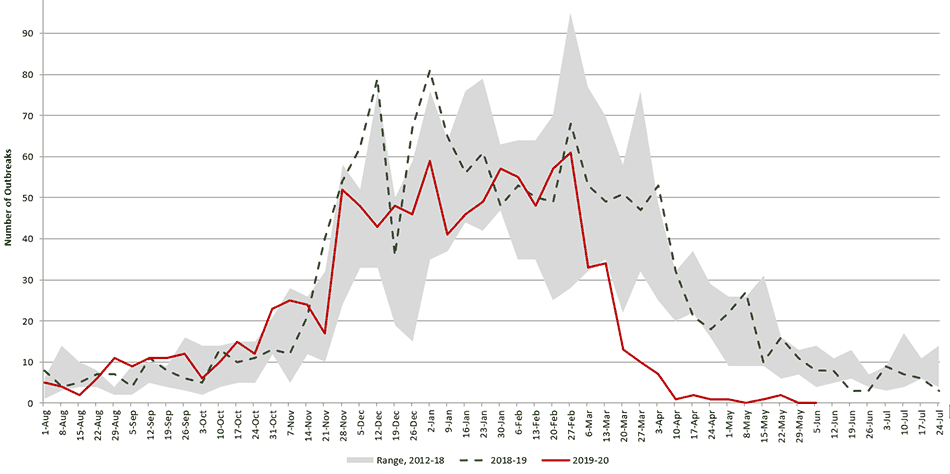The global pandemic caused by the 2019 Novel Coronavirus is one of the most challenging public health events in the past century. It’s difficult for people to know what to do when dealing with a contagious disease with no known treatments, cures or set preventative measures.
At first, we didn’t know if just walking by someone could cause you to get coronavirus. What about your packages from Amazon.com? Are the jars of pasta sauce you brought home from the supermarket safe? Do you have to disinfect your whole house, clothes and car?
The best advice we were getting from the infectious disease doctors and public health specialists seemed to be overly simplistic. Only go our for essentials, stay home if you’re feeling sick, sneeze or cough into your arm or elbow and use good hygiene by washing your hands (or use hand sanitizer) and avoid touching your face. In other words:
#stayhealthy #stayathome #washyourhands
While sitting home, a thought came to my mind. Why weren’t people doing this already? Regular hand washing and staying home when sick seemed to be a pretty simple request. Letting my mind wander, I wondered if everyone listened and followed these rules to keep safe from coronavirus, wouldn’t we also be protecting ourselves from other contagious diseases like the flu and noroviruses?
The data is starting to come in and it looks like my hypothesis was right.
Noroviruses
Noroviruses are a cause of what’s typically called stomach flu. They’re spread in the following ways
- Having direct contact with an infected person
- Consuming contaminated food or water
- Touching contaminated surfaces and then putting your unwashed hands in your mouth
Seems like a hand washing obsessed country avoiding touching their mouths would be able to almost wipe out the spread of the virus. This chart shows the number of cases by week of norovirus outbreaks in the US. The broken line is 2018-19 and the solid red line is 2019-2020. Look what happened at the end of Feb 2020. In 5 weeks, the number of outbreaks almost fell to zero, where it has remained ever since.

Seasonal Flu
One of the big fears about COVID-19 is that the second wave of infections would start to spike in the fall continue into the winter, just in time for seasonal influenza and the common cold to reach their seasonal peaks.
We have a sense of what might happen in the United States because the influenza virus travels the globe following cold weather. Right now it’s winter in the southern hemisphere, so South America, Australia and South Africa are all in their peak time for flu outbreaks.
What happened?
While Americans have struggled with the mixed messaging coming from all sides about what we’re supposed to do, the rest of the world is heeding an important rule for the good of public safety.
#wearamask
Does it work to prevent disease spread? Ask the rest of the world how their flu seasons are going with the public taking basic hygiene rules seriously and complying with rules on social distancing and mask-wearing.
And in Australia, the country’s National Notifiable Diseases Surveillance System recorded only 85 new laboratory-confirmed cases of influenza in the last two weeks of June—a stark difference from the 22,047 confirmed cases recorded during the same time last year.
Does this mean the United States is safe this flu season? Nope.
And in the United States, according to Luhnow and Uribe, mask wearing is still viewed as controversial and vaccination rates are at a record low. In addition, a lot of states are in the process of loosening coronavirus-related restrictions and reopening nonessential businesses and schools.
Could we listen to the doctors this time? Get a flu shot when it’s available. Wear a mask when out of the house. Stay away from big gatherings. Maybe it just might work!
#stayhealthy #staysafe #washyourhands #wearamask
Like this post? Please share it! We have plenty more just like it and would love it if you decided to hang around and get emailed notifications of when we post. Or maybe you’d like to join our Facebook group – we have 14,000+ members and we talk and ask questions about travel (including Disney parks), creative ways to earn frequent flyer miles and hotel points, how to save money on or for your trips, get access to travel articles you may not see otherwise, etc. Whether you’ve read our posts before or this is the first time you’re stopping by, we’re really glad you’re here and hope you come back to visit again!
This post first appeared on Your Mileage May Vary

1 comment
It could have a longer term impact on weakening our immune systems I would think.